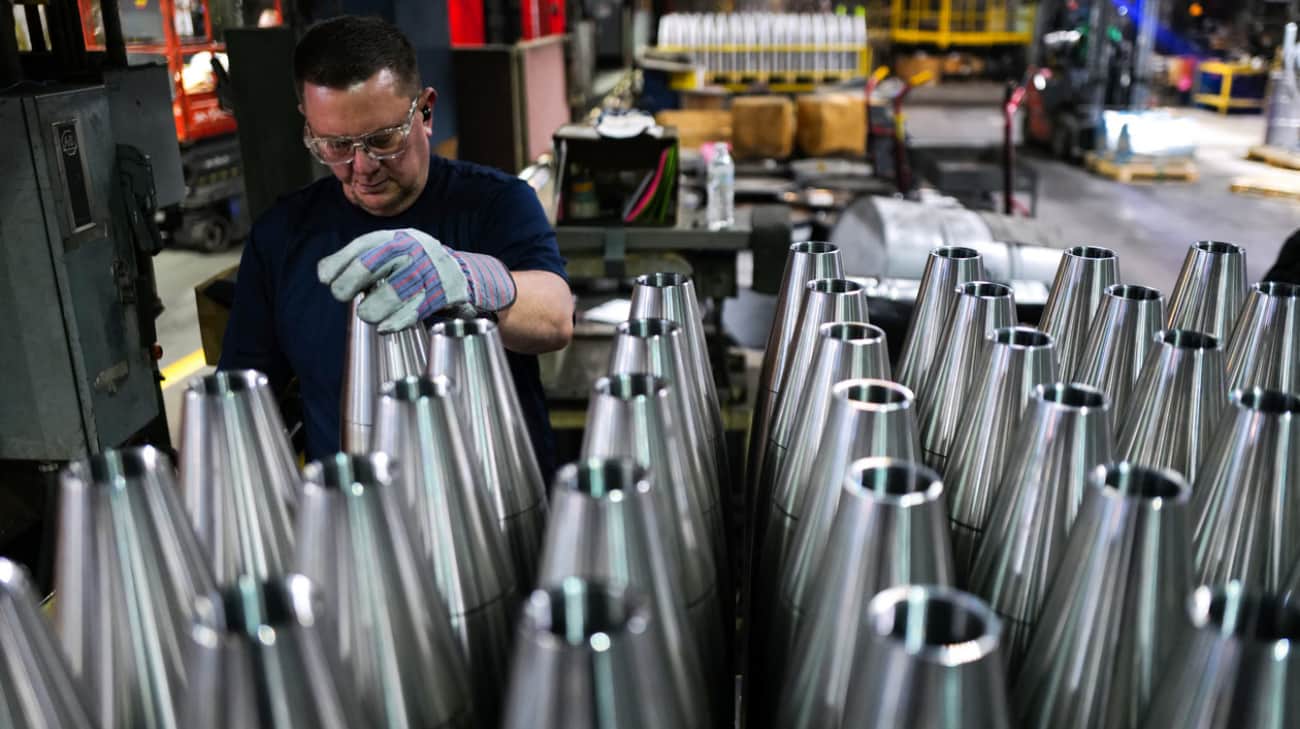“The tariffs imposed by US President Donald Trump can seriously hit the US defense industry by complicating international weapons cooperation and increasing the cost of military equipment production.”, – WRITE: www.pravda.com.ua
Source: Politico
Details: According to the publication, Trump’s tariff policy can lead to disruptions in global supply chains that have spent decades for decades and make US weapons much more expensive.
Advertising:
According to a dozen diplomats, legislators, officials and analysts of the defense industry, an American approach based on the principle of “doing everything” can force US allies to look for alternative ways of ensuring our own security, reducing dependence on the US military-industrial complex. This will strike in the industry that provides weapons most of the world, destroying the trust and predictability of global defense relations, which for a long time brought the benefit of Washington and his allies.
Literally: “The White House in its decree on tariff introduction stated that the United States should produce details” without excessive import on key resources. “But it is much easier to write in a document than to do.
Pentagon has spent decades to create, finance and develop a global network of suppliers and companies that have now encountered tariffs. With no exceptions for defense, the administration can negate a large part of this work, delaying the production of American production weapons for the country and other buyers. ”
Details: Global tariffs – from 20% to imports from the European Union to 10% for goods from the United Kingdom and Australia – will probably undermine defense cooperation. This threatens joint military projects, including the production of F-35 fighter, air defense systems and the construction of nuclear submarines.
“There will be a shortage of” eye “deliveries, our allies and partners will be responsible,” said former Pentagon Employee Bill Greenwolt, who was engaged in the purchase of weapons.
“Some potentially vital goods will either cost much more than before, or they just won’t,” he stressed.
“We expect that the US will supply us with the best equipment, but Europe seeks to reduce dependence on American details and strengthen its own defense potential,” one of the European officials said.
Literally: “One particularly promising initiative of Baiden, which united Australia, the United Kingdom and the US for the construction of nuclear submarines and technology exchange, may end if the spare parts prices are too high.”
Details: Senator Mark Kelly emphasized the complexity of defense production and noted that due to new tariffs, the products of the US military industry could be repeatedly charged in the production process.
“Prices will rise, and, accordingly, the US defense budget should also increase to maintain the current level of combat capability,” Kelly said.
Prehistory:
- On the evening of April 2, the US President officially announced the beginning of a “trade” war with all states of the world, imposing duties from 10% to 50% for imports to the United States, depending on the country of origin.
- EU countries will receive a 20% customs tariff for exports to the US. Ukraine will have the lowest tariff of 10%. In response, Brussels prepares emergency measures to mitigate the effects of Trump’s tariffs.
- Trump’s announcement concerned countries from all over the world, except for a few countries, including Russia. The White House was said that Russia has been ignored because US sanctions have already “prevents any significant trade.”
- US Finance Minister Scott Bessent warned the countries against which the United States launched a trade war on April 2, from rapid steps in response to Washington.
